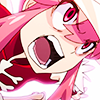Music Notes #14
Dec. 19th, 2014 09:59 pmDie Wacht am Rhein 
This song originated as a poem in the early-mid 19th century. Its content relates to the Rhine river and how Germany (which at the time was a loose confederation of states) would not accept the French attempting to encroach on German territory there. In 1840, the French Prime Minister suggested the French-German border should follow along the Rhine as a natural division between the countries and that all territory up to the left bank should belong to France. This is true in the south portion of the river, where (predominantly) French communities are on the west bank of the river and German communities are on the east bank across from it, but as the Rhine leads further north it curves more and more into Germany where there are no French communities and both sides are German. Since France had taken control of this territory under King Louis XIV and Napoleon I, Germany was outraged at the idea they would attempt to do so again. This poem-turned-song was then written as a symbol of protest. The title translates to "The Watch on the Rhine."
Youtube link to listen here.
The song itself has a very regimented, steady beat and sounds very militaristic, fitting the imagery of the lyrics and rhyming scheme of the poem. It enjoyed great popularity in Germany until the end of WWII. With the end of the war, and the borders of France and Germany permanently established with a treaty and the end of French-German animosity, the actual content of the song no longer has any meaning in German society. It is relevant only for its historical significance and rarely played outside of that context.
In the English-speaking world, this song is probably best known as: "The song the Germans sing in Casablanca before they are drowned out by everyone else singing La Marseillaise." (Viewable here.)
Given this icon is from a scene in which Nonon is losing a fight and about to be drowned out by Ryuuko's power, I was reminded of that scene and named the icon after it.
The lyrics can be read on wikipedia and are rather straightforward so do not require explanation.
This song originated as a poem in the early-mid 19th century. Its content relates to the Rhine river and how Germany (which at the time was a loose confederation of states) would not accept the French attempting to encroach on German territory there. In 1840, the French Prime Minister suggested the French-German border should follow along the Rhine as a natural division between the countries and that all territory up to the left bank should belong to France. This is true in the south portion of the river, where (predominantly) French communities are on the west bank of the river and German communities are on the east bank across from it, but as the Rhine leads further north it curves more and more into Germany where there are no French communities and both sides are German. Since France had taken control of this territory under King Louis XIV and Napoleon I, Germany was outraged at the idea they would attempt to do so again. This poem-turned-song was then written as a symbol of protest. The title translates to "The Watch on the Rhine."
Youtube link to listen here.
The song itself has a very regimented, steady beat and sounds very militaristic, fitting the imagery of the lyrics and rhyming scheme of the poem. It enjoyed great popularity in Germany until the end of WWII. With the end of the war, and the borders of France and Germany permanently established with a treaty and the end of French-German animosity, the actual content of the song no longer has any meaning in German society. It is relevant only for its historical significance and rarely played outside of that context.
In the English-speaking world, this song is probably best known as: "The song the Germans sing in Casablanca before they are drowned out by everyone else singing La Marseillaise." (Viewable here.)
Given this icon is from a scene in which Nonon is losing a fight and about to be drowned out by Ryuuko's power, I was reminded of that scene and named the icon after it.
The lyrics can be read on wikipedia and are rather straightforward so do not require explanation.